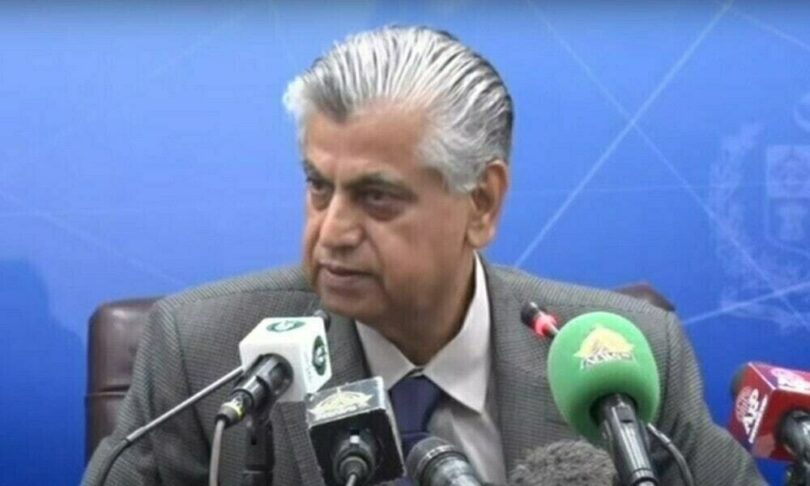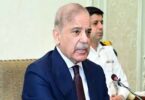F.P. Report
ISLAMABAD: Caretaker Minister for Information, Broadcasting and Parliamentary Affairs Murtaza Solangi on Tuesday highlighted the crucial role of media in shaping public perception about elections through coverage, analysis and debates.
The minister, in a meeting with Pakistan Observer Chairman Faisal Zahid Malik, underlined the need for unbiased, authentic and fact-based media coverage of the general elections, scheduled for February 8. Challenges faced by the media, the regional press, the role of the media in the upcoming general elections 2024 and the freedom of press came under discussion in the meeting.
The minister said that the media acted as a bridge between the candidates and electorates during the elections. The government was striving to provide training and technical assistance to the journalists for coverage of the electoral process, he added. Solangi said the caretaker government fully believed in the freedom of press and expression which was a fundamental right and could not be denied in any circumstances.
He acknowledged the role being played by journalists in the development and prosperity of the country. Pakistan Observer Chairman Faisal Zahid Malik appreciated the government’s commitment to the freedom of press and the welfare of journalists.
Meanwhile, the Federal Caretaker Minister for Information, Broadcasting and Parliamentary Affairs Murtaza Solangi said on Tuesday that all those countries which had touched the zenith of development had done so by empowering local government.
“Throughout my own experiences and understandings there is no democracy without local government”, he said while delivering his speech at a two-day Conference for the Civic Hackathon “Problem Identification”. The minister opined that probably lack of a strong local government system was probably one of the major problems in Pakistan’s political history.
Terming the conference for the civic hackathon problem identification as a very interesting initiative, he said it aimed to bring together experts from the public, private sector and civil society to collectively identify the most pressing civic issues in the country – in order attempt to later develop a digital solution for it. He said that in Pakistan, there was a lot of potential to focus on developing innovative local solutions. However, he said that the problems were often identified in isolation by the public sector and in his opinion this more participatory approach of conducting a problem identification conference and later a civic hackathon would provide more sustainable results.
Solangi said that the government of Pakistan now recognized the increasing need and advantage of a culture of evidence-based decision-making that is participatory – meaning that it engaged citizens and that was need-based so to ensure the effective allocation of resources. He said that during the 18th Amendment, Article 140 was amended by adding sub article called 140-A reading: “Each province shall by law establish a local government system and devolve political, administrative and financial responsibility and authority to the elected representatives of the local government”.
He said that was the reason many political commentators and some parties had started pressing that the local government laws of the provincial government must be in harmony with this article of the Constitution. Solangi said this very important conference was not about just digital literacy or just finding digital solutions, at the heart of the problem was governance itself. “People are at the center of this whole exercise that you are conducting so we should know what our problems are, who our target audience is, and where are we heading with this digital exercise”, he added.
The minister said he believed that ultimately this process would help improve public service delivery, bridge the digital divide and strengthen local governments. Solangi said that local governments were not only custodians of such digital solutions but also the main drivers of change at a local level across the country.
He extended his sincerest thanks to the participants from the public and private sectors, local government officers from Khyber Pakhtunkhwa and Punjab, academia, and experts in the field of local government. The minister hoped that collective brainstorming for the joint identification of a problem statement would enable local governments in Pakistan to strengthen digital transformation. He also thanked the Federal Republic of Germany especially the Deutsche Gesellschaft für Internationale Zusammenarbeit (GIZ) GmbH which had been working in Pakistan since 1961 and has offices in several provinces for supporting this important initiative.







